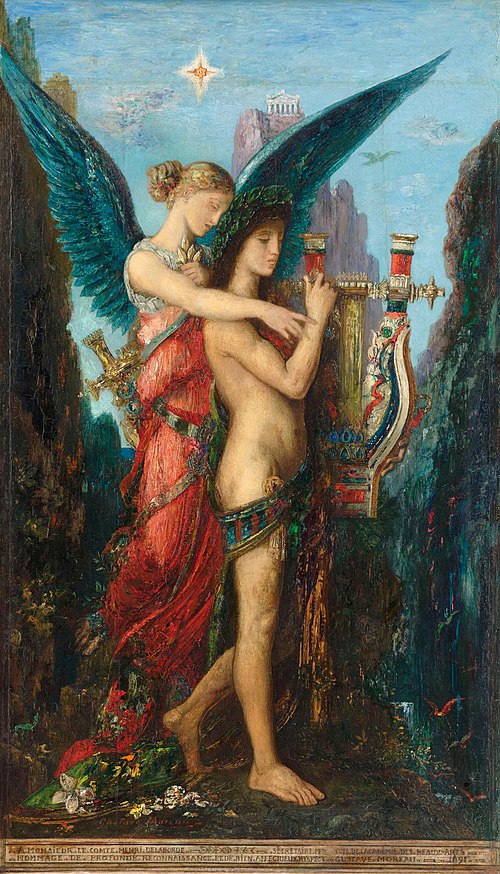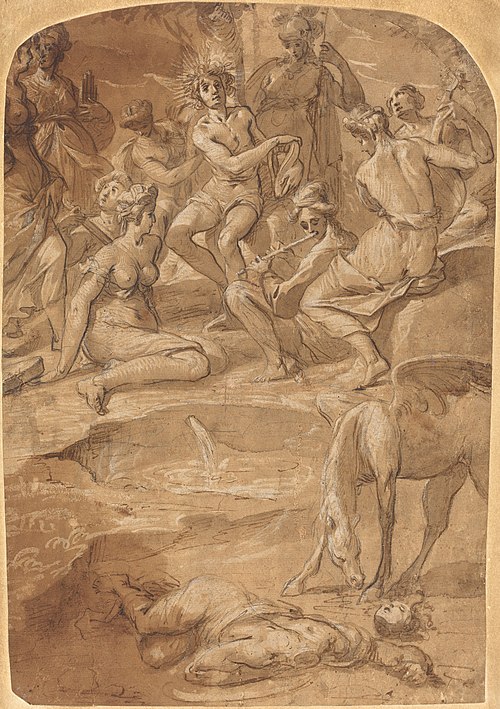Musernoun
One who muses.
Musernoun
One who muses.
Musernoun
a reflective thinker characterized by quiet contemplation
Musenoun
A source of inspiration.
Musenoun
(archaic) A poet; a bard.
Musenoun
An act of musing; a period of thoughtfulness.
Musenoun
A gap or hole in a hedge, fence, etc. through which a wild animal is accustomed to pass; a muset.
Museverb
(intransitive) To become lost in thought, to ponder.
Museverb
(transitive) To say (something) with due consideration or thought.
Museverb
(transitive) To think on; to meditate on.
Museverb
(transitive) To wonder at.
Musenoun
A gap or hole in a hedge, hence, wall, or the like, through which a wild animal is accustomed to pass; a muset.
Musenoun
One of the nine goddesses, daughters of Zeus and Mnemosyne, who presided over song and the different kinds of poetry, and also the arts and sciences; - often used in the plural. At one time certain other goddesses were considered as muses.
Musenoun
A particular power and practice of poetry; the inspirational genius of a poet.
Musenoun
A poet; a bard.
Musenoun
Contemplation which abstracts the mind from passing scenes; absorbing thought; hence, absence of mind; a brown study.
Musenoun
Wonder, or admiration.
Museverb
To think closely; to study in silence; to meditate.
Museverb
To be absent in mind; to be so occupied in study or contemplation as not to observe passing scenes or things present; to be in a brown study.
Museverb
To wonder.
Museverb
To think on; to meditate on.
Museverb
To wonder at.
Musenoun
in ancient Greek mythology any of 9 daughters of Zeus and Mnemosyne; protector of an art or science
Musenoun
the source of an artist's inspiration;
Museverb
reflect deeply on a subject;






















